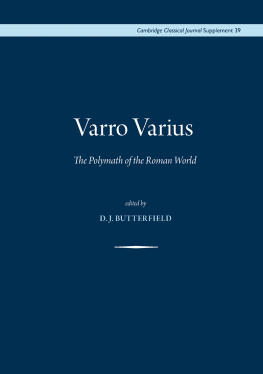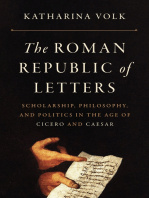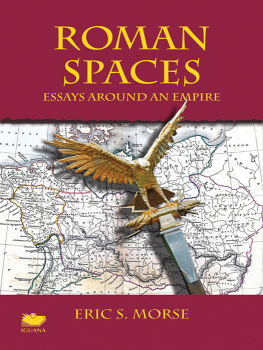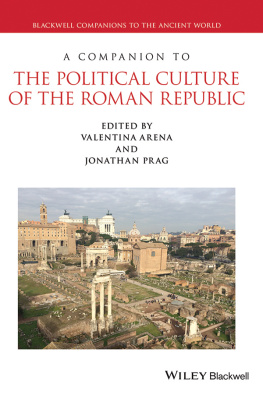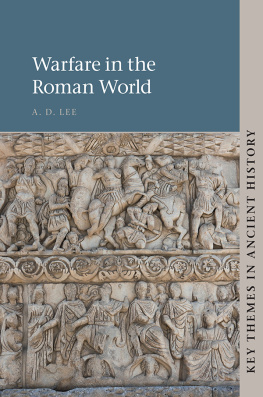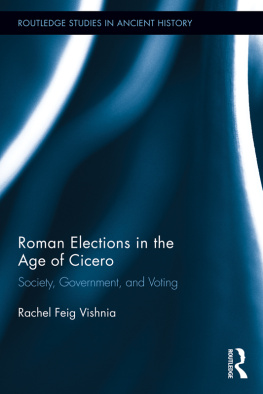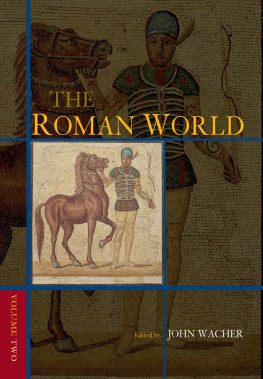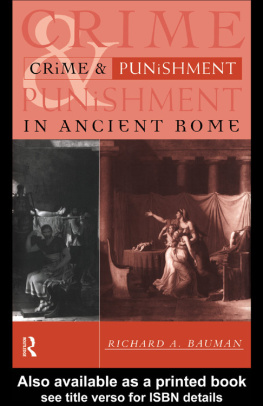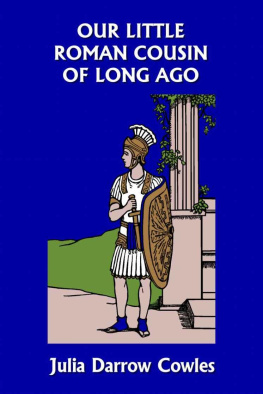Rome produced no man more erudite, eclectic and energetic than Marcus Terentius Varro (11624 BC). Over a long and busy life, set against the backdrop of near-constant social and political upheaval, Varro studied and codified almost every conceivable topic for intellectual enquiry. His vast output of at least seventy works in over 600 books is breathtaking in its range and ambition: antiquity (in all its aspects), language, literary history, theology, philosophy, sociology, agriculture, geography, music, mathematics to say nothing of his own poetic and satirical writings. In many of these fields Varro redefined the terms of study for the Roman world (and beyond); in some he founded a scholarly discipline and tradition without any precedent. Yet the greatest scholar of Rome has rarely enjoyed the attention he deserves from the modern world: although the fragmentary state of much of his corpus presents serious obstacles to enquiry, the extant material provides a rich and unparalleled insight into Roman scholarship of the first century BC. This volume of new essays on Varro seeks to analyse this multifaceted polymath from several angles, not only revisiting his better known writings and the problems they raise but also reconstructing his intellectual activity and its influence on the basis of insufficiently examined evidence.
David Butterfield is a Fellow of Queens College and University Lecturer in Latin Literature at the University of Cambridge.
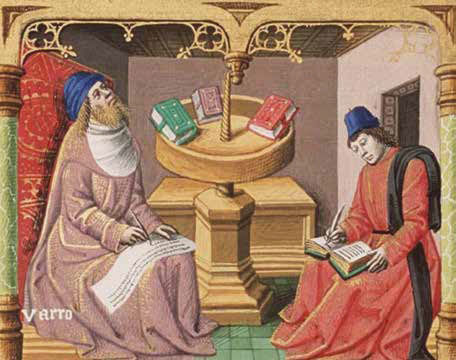
Varro contemplates his new composition as the scribe concentrates on his copying (The Hague, MMW, 10 A 11, 290v, 144050)
CAMBRIDGE CLASSICAL JOURNAL
SUPPLEMENTARY VOLUME 39
Series editor: CHRISTOPHER WHITTON
VARRO VARIVS
THE POLYMATH OF THE ROMAN WORLD
edited by
D. J. BUTTERFIELD
Published by The Cambridge Philological Society.
www.classics.cam.ac.uk/philological
The Cambridge Philological Society 2015
ISBN: 978-0-9568381-4-8
eISBN: 978-1-9137010-0-0
Mobi ISBN: 978-1-9137010-0-0
This book is available direct from Oxbow Books, 10 Hythe Bridge Street, Oxford, OX1 2EW.
www.oxbowbooks.com
Preface
The varied essays that make up this book have sprung, in a sense, from a single source: the Craven Seminar, hosted annually by the Faculty of Classics in the University of Cambridge, devoted itself on 27 to 29 May 2011 to Marcus Terentius Varro. Over these three days Varronian experts discussed and debated his scholarly output, his relationship with contemporary Rome and his influence on successive figures throughout the Empire. By bringing together scholars from several countries, the conference aimed also to build new lines of communication and suggest fresh opportunities for collaboration between Classicists in a field that still cries out for major research, not least in Anglophone scholarship. Although it seems difficult to do more than scratch the surface of Varros immense range and influence in a book of this size, if the following eight essays (revised from papers delivered at the conference) serve to prompt more activity and enquiry into the life and work of this remarkable man, their contribution to Varronian studies will happily extend beyond this collection.
I am profoundly grateful to all those who helped organise the Craven Seminar, who encouraged the publication of these papers and who helped steer the book to press. The formidable precision of Andrew Dyck and the admirable efficiency of Andrew Harvey were of considerable benefit; in addition, through his guidance and patience, Christopher Whitton has been remarkably gracious. Finally, I would like to thank all of the contributors to this volume, from whom I have learned much in bringing their work between these two covers.
David Butterfield
Queens College
Cambridge
October 2014
List of contributors
Adam Gitner is Assistant Professor in the Department of Classical Studies of Indiana University Bloomington.
Leofranc Holford-Strevens was Consultant Scholar-Editor at Oxford University Press till his retirement in 2011.
Yves Lehmann is a Professor of Philologie classique at the University of Strasbourg.
Giorgio Piras is Assistant Professor of Classical Philology at the Department of Scienze dellantichit at La Sapienza, University of Rome.
Robert Rodgers is Lyman-Roberts Professor of Classics at the University of Vermont.
Diana Spencer is a Lecturer in the Department of Classics of the University of Birmingham.
Daniel Taylor is the Hiram A. Jones Professor Emeritus of Classics at Lawrence University.
Peter Wiseman is Emeritus Professor of Classics at the University of Exeter.
Abbreviations
| Bip. | Societas Bipontina (1788) M. Ter. Varronis de lingua Latina libri quae supersunt cum fragmentis ejusdem, 2 vols., Zweibrcken |
| DGE | Diccionario GriegoEspaol ( http://dge.cchs.csic.es ) |
| FGrH | F. Jacoby, ed. (192358) Die Fragmente der griechischen Historiker, 15 vols., Berlin/Leiden |
| FPL M. | W. Morel, ed. (1927) Fragmenta poetarum Latinorum epicorum et lyricorum praeter Ennium et Lucilium, Leipzig |
| FPL Bl. | J. Blnsdorf, ed. (2011) Fragmenta poetarum Latinorum epicorum et lyricorum praeter Ennium et Lucilium (2 nd edn), Berlin |
| FRHist | T. J. Cornell, ed. (2013) The fragments of the Roman historians, 3 vols., Oxford |
| GL | H. Keil, ed. (188580) Grammatici Latini, 8 vols., Leipzig |
| GRF | G. Funaioli, ed. (1907) Grammaticae Romanae fragmenta, Stuttgart |
| HLL | R. Herzog, P. L. Schmidt and W. Suerbaum, eds. (2002) Handbuch der lateinischen Literatur der Antike, 3 vols., Munich |
| LL | Varro De lingua Latina |
| Men. | Varro Saturae Menippeae |
| OCD | S. Hornblower, A. Spawforth and E. Eidinow, eds. (2012) Oxford classical dictionary (4 th edn), Oxford |
| OLD | Oxford Latin dictionary |
| RE | Pauly-Wissowa, Real-Encyclopdie der classischen Altertumswissenschaft |
| RR | Varro De re rustica |
| TLL | Thesaurus Linguae Latinae |
Introduction
David Butterfield
Varro is a figure to whom scholarship has not yet done justice. This shortcoming may partly be explained by the fact that the man and his output are often only accessible by the most painfully indirect of routes. Nevertheless, there are few figures from the ancient world that reward enquirers as much as Varro. To open this collection of essays, I shall attempt in this introduction to lay out some of the known facts and plausible inferences about the remarkable scholar at the heart of this book.
Varros long and varied life can be analysed as a series of successes and failures, of fervent activity and of tactful retirement. His afterlife, however, from the dawn of the Roman Empire through to the Italian Renaissance, must largely be seen in negative terms: although he was roundly heralded as the most erudite man of his age and, in due course, of the whole history of Rome, his mixed reception by the Church Fathers, combined with the crushing blow to learning dealt by the fall of the Roman Empire, proved fatal to the survival of his sole monuments his immense corpus of written works. After the period from the mid-sixth to the mid-eighth centuries, the darkest of Dark Ages, it was very probably the case that almost every book that Varro had written was irrevocably lost, his manuscripts having been exposed through neglect to the ever-present hazards of fire, water and war. Over 95% of Varros writings do not survive to us, and of over seventy separate works authored by him only one survives in an effectively complete state. To give a very rough idea of the extent of this loss, it would be analogous, if we take Ovid as a more common, though much less productive, author for comparison, to having just a couple of books of his Fasti and the complete poem Ibis; as regards all the rest of Ovids works, including the magnum opus on which his fame rests, some would be preserved in only occasional single-line or even single-word fragments, the rest being lost without a trace. Thus in the case of Varro his name and fame as a polymath have reached us with much greater clarity than the actual writings upon which that very prestige was built.

